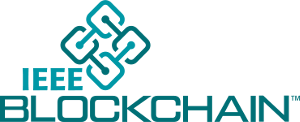IEEE Talks Blockchain: Powering Transactive Energy
 As the co-founder and chief executive officer of Curve10, Dr. Hunter Albright helps companies grow through experimentation to develop ideas and opportunities that transform businesses. He speaks regularly on topics related to innovation and entrepreneurship and advises entrepreneurial ventures and accelerators. He has extensive senior executive experience in multiple startups and Fortune 100 companies across the financial services, consulting, software and energy industries. Dr. Albright also is an instructor in the Strategy, Entrepreneurship, and Operations Division at the Leeds School of Business and in the College of Engineering and Applied Science, University of Colorado. His research interests focus on entrepreneurship, innovation, product management and the application of advanced technologies and analytics such as artificial intelligence (AI), blockchain and the Internet of Things (IoT) in commercial ventures.
As the co-founder and chief executive officer of Curve10, Dr. Hunter Albright helps companies grow through experimentation to develop ideas and opportunities that transform businesses. He speaks regularly on topics related to innovation and entrepreneurship and advises entrepreneurial ventures and accelerators. He has extensive senior executive experience in multiple startups and Fortune 100 companies across the financial services, consulting, software and energy industries. Dr. Albright also is an instructor in the Strategy, Entrepreneurship, and Operations Division at the Leeds School of Business and in the College of Engineering and Applied Science, University of Colorado. His research interests focus on entrepreneurship, innovation, product management and the application of advanced technologies and analytics such as artificial intelligence (AI), blockchain and the Internet of Things (IoT) in commercial ventures.
Q: How do you see blockchain impacting transactive energy?
Hunter Albright: Blockchain will allow for new precision in transactive energy. Historically, energy transactions have been tracked in large blocks, because we have not been able to track small amounts of generation or consumption. With blockchain, we can monitor, measure and track generation and consumption on a more granular level than previously possible.
This technology opens up new horizons for utilities in terms of reducing the amount of energy consumed at different points in time and shifting loads from one part of the day to another. Achieving these goals can help us work toward a better and more optimized mix of energy generation to accommodate solar, nuclear, coal or natural gas generation.
This technology also opens up potential with “pro-sumers”—those consumers on the grid edge who can both consume and generate energy. We need a mechanism both to reward pro-sumers and to track the transactions of how much they are consuming or generating, working to give back to the grid as much as possible. Blockchain can answer practical questions surrounding pro-sumers by enabling us to track who owns what assets and how those assets are being used. This knowledge can help answer the questions of what energy distribution should cost and how we determine a charge for the transmission of energy. Knowing who owns every asset and tracking the energy that goes through a given asset as part of the transmission helps us understand the cost, assign revenue for that service and know to whom to assign it. And blockchain would allow this to take place in a transparent way, which would elevate trust with the overall system.
Q: How would you describe the regulation and the technology in terms of readiness?
Hunter Albright: Both need more innovation. Moving to dynamic pricing would make it possible to have pricing changes that encourage different behaviors. This would open up optimization and change in the system, which blockchain would help realize. But current regulation largely has failed to create the necessary incentives to drive dynamic pricing. The incentives have to be right, especially with investor-owned utilities. It's largely been this game of, ‘Hey, we're going to get funding to build a plant, and then we're going to capture payback over a longer time period.’ In this way, there hasn't been the incentives to be more dynamic, because the price gets locked in through the PUC (public utility commission) and the organizations in regulation around that. That is starting to change.
Also, we are still early in the technological development of blockchain, and there are a lot of negative perceptions around the technology, especially as it relates to Bitcoin. We need more proof of concept to show how it can and should be implemented. Then we need to take successful experiments and do them at scale to ensure trust in the technology and the solutions.
Q: How would you respond to questions of scalability?
Hunter Albright: People who are resistant to change do tend to question the scalability, as well as the security; these are common objections that we look at in areas of emerging tech. I think what is exciting is the potential scale of transactive energy makes it worth more experimentation. One thing that excites me about transactive energy, especially via blockchain, is machine-to-machine transactions. For example, we could have transactions going on between a solar panel and an electrical vehicle or a battery happening at micro-scale increments. We could have a micro fraction of a kilowatt hour that gets transmitted over 30 seconds, and the blockchain technology would have the ability to track, record and charge for the transaction through smart contracts.
Q: What is the role of standards in this innovative space?
Hunter Albright: Standards will help decrease risks in investment. With consensus around standards, people can invest in technologies and solutions we know will work together. Since there is no one vertically integrated provider, we need lots of different components to fit together to reach the larger scale, which is needed both for potential use in the power grid and for transactive energy to be seen as a viable solution.
Standards also will help focus everybody. Once we get beyond the protocol layer, we can think about how to provide better services to the active participants of the system: the businesses and consumers that want to use the energy, as well as the device makers. The standards might change, but finding a starting point would accelerate our advancement.
Q: Why is IEEE the right place for this kind of innovation to take place?
Hunter Albright: There are several reasons. IEEE has tremendous heritage in both power and standards. IEEE membership is a global network of capable engineers who have a history of creating standards that address the kinds of questions blockchain for transactive energy is facing today: How can we ensure interoperability? How can we design systems that can start to operate at scale? How can we design systems that are part of the critical infrastructure of a country?
Also, IEEE has the global reputation to help get larger countries and companies to experiment with new regulation. IEEE can serve as an unbiased facilitator of progress and momentum, pushing for better definitions so the people who can prototype a solution or develop a pilot program can actually move forward, see what the learnings are and iterate as quickly as possible.
Q: How will this collaboration make the world better?
Hunter Albright: The work that IEEE is doing with blockchain and energy could help address climate change. In energy infrastructure today, there is huge waste as energy goes from a generation source to a consumption source. If we can affect the efficiency and reduce the cost of the overall system, we can impact the climate. These improvements could also increase the resiliency and security of core infrastructure. We all rely on electricity so much that, in times when we do not have it, it is both a national-security issue but also just detrimental to the day-to-day wellbeing of people around the world.


